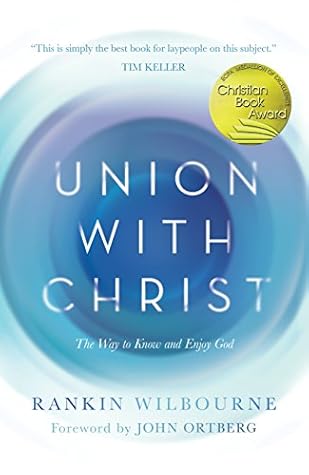More on this book
Community
Kindle Notes & Highlights
Read between
April 3 - April 19, 2019
But spell it out: At-One-Ment. This is the heart of our good news—that because of Jesus we can now be “at one” with God.
Union with Christ is how the Bible’s great unifying theme—communion with God—has come to pass. Don’t you see? Union with Christ—not only is it in the Bible, but it’s what the Bible is all about!
Paul says you are united to Christ like the parts of a body are related to its head. Could any relationship be more essential?
This means your relationship to Christ is closer, more central, more defining, and more important than any other relationship you have or ever could have—closer than your relationship with your parents, your spouse, your children, even your own body! Indeed, it is “closer than any other union which man can possibly imagine.” 13
To know Christ is to be connected to him, personally, vitally, and organically, like branches to a vine. And a life of abiding in Christ—living out of our union with him—is the abundant life (John 10:10).
The same Spirit who inspired the words of Scripture long ago now lives in you and speaks through these same words and illuminates them as you read today. The one spoken of on the pages is the same one who speaks through them. So you can come to the Bible expecting to hear from and commune with the one who stands at the center of it: Christ.
The Bible teaches us that we can be united to Christ, and our union with Christ, in turn, teaches us how to read the Bible. If you are united to Christ, then from him come both grace and demand, which together lead to a life of joy.
For the early church fathers, the incarnation and its continuing importance were central to the idea of salvation because knowing God was not merely a theological exercise but an invitation to commune with God. Theology meant understanding your life as enfolded within God’s own life.
These theologians were careful to stress that theosis did not mean human beings become divine in the same way that God is divine (eternal, infinite, omnipotent, all knowing, etc.). They staunchly maintained a Creator/creature distinction. Yet they were comfortable, in ways we rarely are today, talking about our participation in God’s own triune life.
If you spell out the other Greek word, peri-choresis, you can hear in English what the word conveys: peri (from which we get words such as perimeter) and choresis (from which we get our word choreography)—a dancing circle. The word describes the interrelationship of the persons of the Trinity. That in everything God the Trinity is and does, each of the three persons relates to and engages with each of the other persons.
The mystery of the marriage union between Christ and the soul is what allows sinful people to truly possess Christ’s righteousness and allows Christ to take upon himself our sin, death, and condemnation. 18 Reading the Protestant
For Calvin, union with Christ is not—cannot be—an optional aspect of our salvation. The person of Christ is our salvation. Every benefit of the gospel comes to us through and only through our union with him. For Calvin, the mystery of our spiritual connection to the living, incarnate, crucified, resurrected, and ascended Lord is what it means to be “saved.” 23
Sinclair Ferguson, in his book The Trinitarian Devotion of John Owen, demonstrates that communion with God and union with Christ through the Holy Spirit is the great unifying theme of Owen’s works. For Owen, nothing is more practical to the Christian life than understanding this vital union and understanding that it is not abstract, but real and personal.
Ferguson concludes: Owen’s great burden and emphasis in helping us to understand what it means to be a Christian is to say: Through the work of the Spirit, the heavenly Father gives you to Jesus and gives Jesus to you. You have Him. Everything you can ever lack is found in Him; all you will ever need is given to you in Him … For the Father has “blessed us in Christ with every spiritual blessing in the heavenly places.”
Could anything be more helpful to your daily living and devotion to God than to realize this—that the Father sees you and all you do through the lens of your union and fellowship with Christ? 35
For Edwards, this is the gospel—not any benefit that Christ brings, but that, above all, Christ brings us into communion with God.


